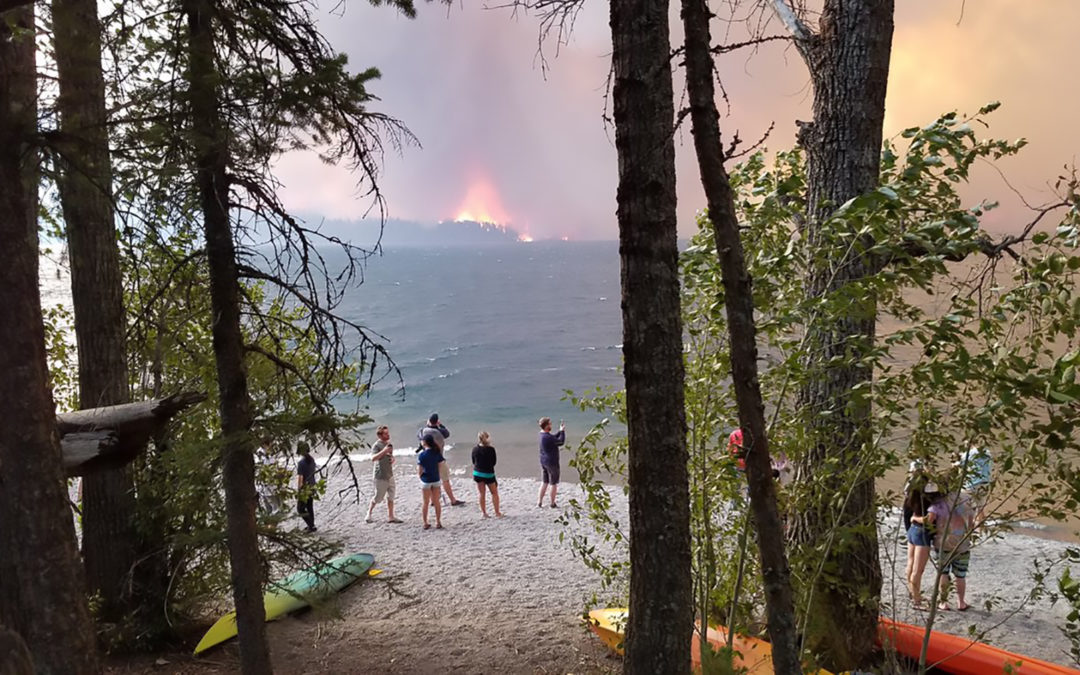SOURCE: Grist
DATE: August 13, 2018
SNIP: This summer has felt like a global warming turning point.
Now, another milestone: Saturday was the hottest day in the history of Glacier National Park, and its first recorded time reaching 100 degrees F.
On the same day, lightning started three fires in the Montana park, which has since been partly evacuated and closed.
On Sunday, hot and dry winds helped the biggest fire expand rapidly. Authorities have taken extreme measures, including deploying smokejumpers and dispatching firefighters by foot to reach the parts of the fire in rough terrain. So far, according to the National Park Service, these efforts have not been effective to slow the fire’s spread.
Right now, every state west of the Mississippi is at least partly in drought, including Montana. Missoula, the closest major city to Glacier National Park, hasn’t had any measurable rain for 40 days, and none is in the short-term forecast either — a streak that will likely wind up being the driest stretch in local recorded history, beating a mark set just last year.
It’s clear that Montana is already becoming a vastly different place. In recent decades, warmer winters have helped mountain pine beetles thrive, turning mountains red with dead pines. In 1850, there were 150 glaciers in the area now known as Glacier National Park. Today there are 26. They’ve been there for 7,000 years — but in just a few decades, the glaciers of Glacier National Park will almost surely be gone. By then the park will need a new name. Glacier Memorial Park doesn’t have the same ring to it.
Fire is a normal part of life in Montana, but all this abnormally hot weather is drying out the state’s forests and turning places like Glacier National Park into a tinderbox. Worldwide, forests are dying at an unprecedented rate thanks to climate change and pressure from agricultural and urban expansion. The same is true in Montana, where rising temperatures and more severe drought has already led to longer and more severe wildfire seasons.

